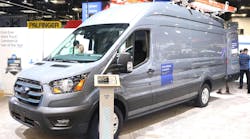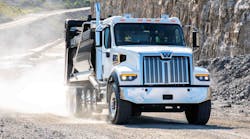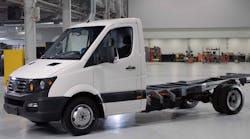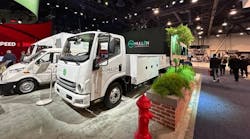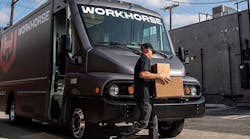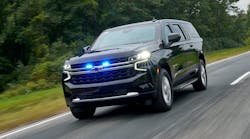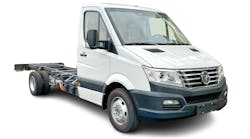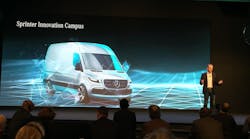Dubbed “a piece of the future that is becoming the present,” Mercedes-Benz Vans highlighted the impending launch of the third generation of its Sprinter commercial van with a special event at the Sprinter Innovation Campus in Stuttgart, Germany
Volker Mornhinweg, head of Mercedes-Benz Vans, noted in a presentation during the event that “in a digitalized world” commercial vans “are the hardware that brings the products and services to the customer. And if life and logistics in the city are changing, our vans have to change too.”
Matthias Winkenbach with the Massachusetts Institute of Technology (MIT) noted a key driver of that digitization is last-mile logistics in urban centers across the world.
According to Winkenbach, the 600 fastest growing cities will be responsible for 60% of global gross domestic product (GDP) in 2025 and contain 25% of the world’s population.
He added that by 2030 there will be more than 40 megacities around the world, each with more than 10 million inhabitants.
However, it is not number of cities but their growth in density that will increase traffic jams as increasing e-commerce fuels more urban congestion.
On top of that, “online shippers like Amazon are raising customer expectations,” Winkenbach stressed. “They expect to order today and get their goods tomorrow – or have them delivered outside door in the evening a few hours after being order. That is increasing complexity for last-mile logistics.”
That’s why Mornhinweg stressed that Mercedes Benz no longer considers itself a commercial van manufacturer; rather “we are becoming a supplier of integrated mobility solutions,” he said.
“The extremely dynamic developments in urbanization and digitalization are presenting both us and our customers with completely new challenges,” Mornhinweg pointed out. “The new Sprinter will be a completely networked van as part of the IoT, where we have already written connectivity into the vehicle's DNA.”
He said Mercedes-Benz Vans is moving from being purely a vehicle manufacturer into a supplier of holistic transport and mobility solutions. The initiative is now divided into five areas:
With digital@vans it's mostly about connectivity and the digital networking of Sprinter vans.
With solutions@vans the company is developing hardware solutions to make the customers' daily work more efficient.
In the rental@vans field it's about innovative rental models with a pay-per-use approach, called “Mobility on Demand.”
With sharing@vans we deal with new concepts in local public transport.
And with eDrive@vans the company is developing a comprehensive approach to electric mobility.
“We are also changing our working culture,” he stressed. “We are creating agile units which pool diverse areas of expertise and work on individual solutions – from mechanical engineers, electrical engineers and computer scientists to lawyers, psychologists and social scientists.”
Mornhinweg emphasized that the new Sprinter will be the first model series in which “all these new developments” come together.
“The result is a completely new kind of concept which we no longer consider to be just a vehicle, but an overall system solution,” he said. “We are extending the fundamental idea of the product's versatility – so the hardware itself – and transforming it into a new, more intelligent form.”
Volker said Mercedes Benz has sold 3.3 million Sprinters since it was first introduced in 1995 and will sell roughly 142,000 units globally this year. Also the all-Electric eSprinter will arrive in 2019.
